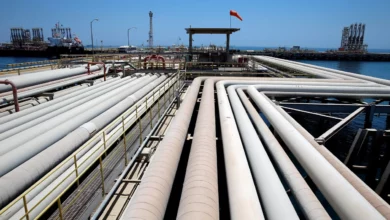
Egypt signed $350 million worth of financing agreements with Saudi Arabia on Saturday aimed at upgrading its power grid and securing imports of petroleum products as it seeks to end its worst energy crisis in decades.
Power cuts have become common in Egypt as the cash-strapped government struggles to supply enough gas to its power stations let alone upgrade a grid suffering from decades of neglect.
The energy crunch has become a political hot potato in the Arab world's most populous country, which has turned from a gas exporter into a net importer in recent years as it diverts gas once destined for export to meet burgeoning domestic demand.
Lines at petrol stations and a shortage of gas were among the main public grievances against former President Mohamed Mursi of the Muslim Brotherhood. But oil-producing Gulf allies have come to Egypt's aid since the army, prompted by mass protests, ousted Mursi last year.
Two loan agreements signed on Saturday worth a total of about $100 million will be invested in two electricity stations that are expected to boost the capacity of the national grid. A further $250 million in assistance will come in the form of petroleum products.
Saudi Arabia sent Egypt $3 billion worth of refined oil products between April and September of this year, according to an Egyptian oil official, while the total value of Saudi oil aid since July 2013 amounted to about $5 billion.
Egypt has also turned to the United Arab Emirates for oil products, signing deal in September that commits it to purchasing about 65 percent of its needs from its Gulf ally in the next year.
Egypt introduced deep cuts to energy subsidies in July, which have resulted in price rises of more than 70 percent, as it seeks to curb public spending and fuel waste.




